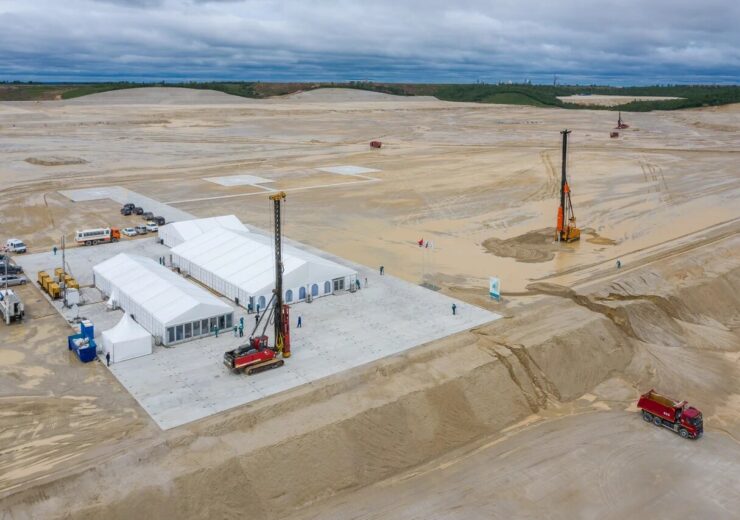The Chinese company will have a 40% stake in the petrochemical project, which is being constructed in the Russian Far East

Construction begins on the Amur Gas Chemical Complex. (Credit: SIBUR Holding)
The Russian government commission on foreign investment has approved China Petroleum & Chemical Corporation (Sinopec)’s participation in the Amur Gas Chemical Complex (Amur GCC), being built by Sibur in Amur region in Russia.
As per a framework agreement signed by the parties in June last year, Sinopec will have a stake of 40% in the petrochemical complex located in the Russian Far East.
According to Sibur, China continues to be the key driver behind the growth of global polymer consumption, and will be a target market for its petrochemical project.
The Russian government claimed that the Amur Gas Chemical Complex will become a major petrochemical plant in the country and internationally.
It stated: “The fact that a major international petrochemical company, Sinopec, will participate in the project highlights Russia’s investment appeal.”
In August 2020, Sibur began construction on the Amur Gas Chemical Complex.
The project involves the construction of a basic polymer production facility, which will be fed with ethane and liquefied petroleum gas (LPG) sourced from Gazprom’s Amur Gas Processing Plant.
Slated to be commissioned in 2024-25, the petrochemical complex will have a total capacity of 2.7 million tonnes per annum (mtpa). This includes 2.3mtpa of polyethylene and 400 kilo-tonnes per annum (ktpa) of polypropylene.
Sibur had engaged a consortium of Linde and NIPIgaspererabotka (NIPIGAS) for providing engineering, procurement, and site services for the cracker unit of the Amur Gas Chemical Complex.
Univation Technologies and Chevron Phillips will provide the technology for ethylene polymerisation, while LyondellBasell will offer its propylene polymerisation technology for Sibur’s project.
Sibur claimed that the Amur Gas Chemical Complex will implement a remote control room and will benefit from more than 150 digital and automated solutions. The petrochemical project will also have round-the-clock remote monitoring and control of most process operations, said the Russian petrochemical company.
